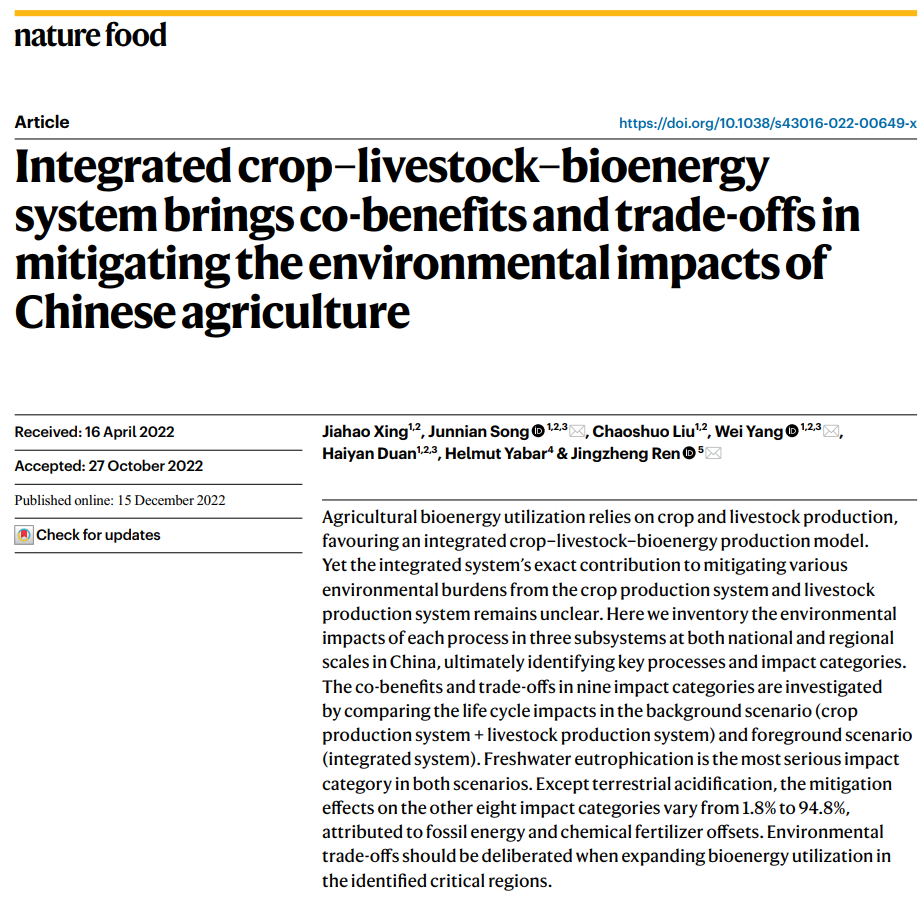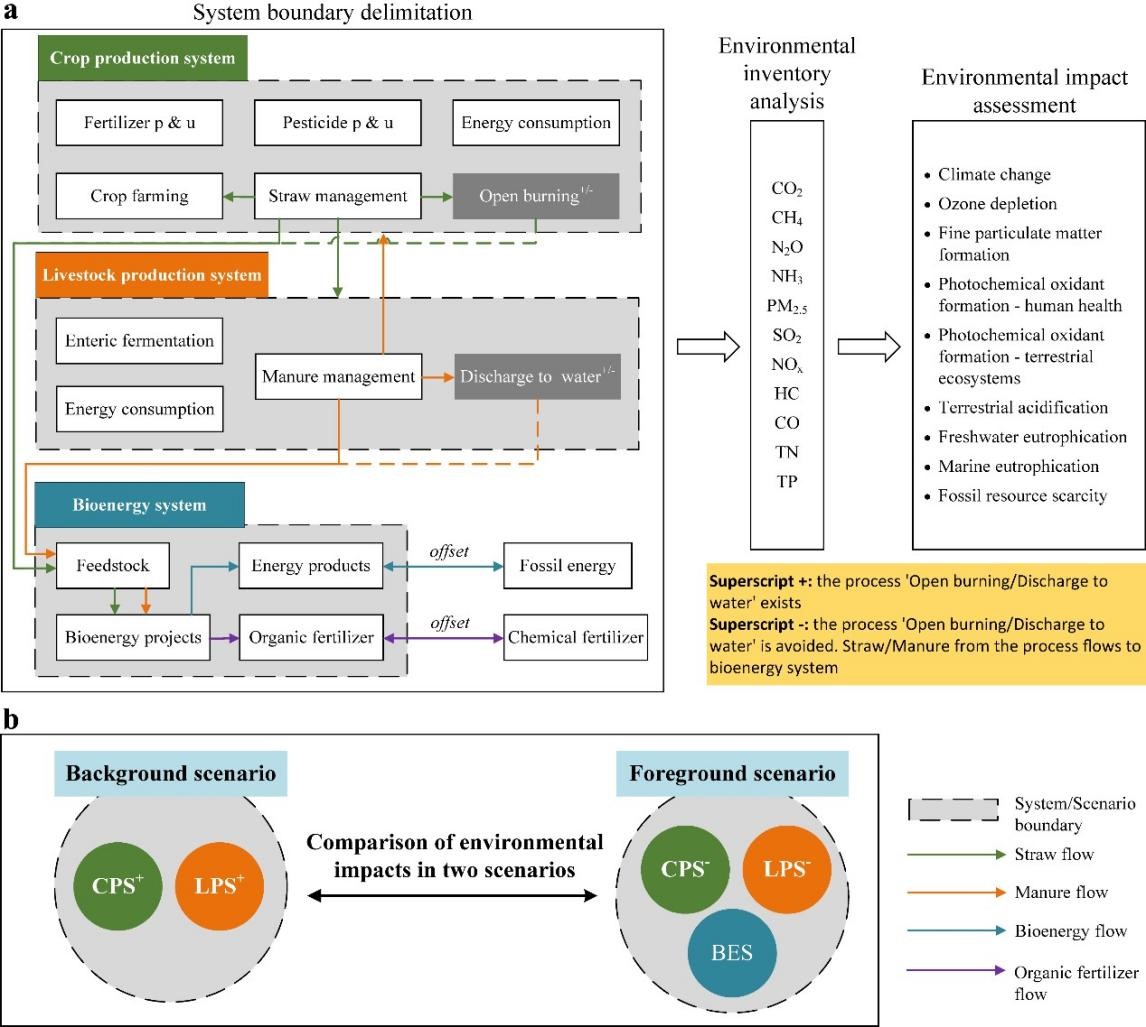Recently, the research team led by Prof. Song Junnian from the College of New Energy and Environment (CNEE), in cooperation with the University of Tsukuba in Japan and the Hong Kong Polytechnic University, has made important progress in bioenergy utilization and environmental impacts of agriculture. Their findings were published in Nature Food under the title of “Integrated crop-livestock-bioenergy system brings co-benefits and trade-offs in mitigating the environmental impacts of Chinese agriculture”. Nature Food is a top journal in agriculture and food research. The Key Laboratory of Groundwater Resources and Environment of the Ministry of Education of Jilin University was listed as the first author’s affiliation of this paper. This was the first time that CNEE had published a paper in a Nature research journal.
While large-scale and intensive crop and livestock production activities are essential for food security, they also lead to greenhouse gas emissions, nitrogen and phosphorus losses, fossil energy consumption and air pollutant emissions. All of these activities have aggravated the environmental impacts of agriculture. As by-products of the crop production system (CPS) and livestock production system (LPS), straw and animal manure can be used for bioenergy production, which makes it possible to establish an integrated crop-livestock-bioenergy system. Yet, it remains to be studied whether and to what extent this system could indeed mitigate the various environmental impacts of CPS and LPS.
Using life cycle assessment and scenario analysis, among other methods and with 2019 as the base year, this study evaluated China’s 31 provincial-level regions by establishing an inventory of emissions covering the life cycles of CPS and LPS with abundant local parameters. It traced and extracted the bioenergy flow in the CPS and LPS to establish the integrated crop-livestock-bioenergy system, and evaluated the mitigation or intensification effects of the integration of three subsystems on nine categories of environmental impacts at both national and regional scales in China. It was shown that except for terrestrial acidification, the other eight categories of environmental impacts could be mitigated by 1.8% to 94.8%, attributed to fossil energy and chemical fertilizer being replaced with organic fertilizer. While expanding bioenergy production in certain regions, its adverse environmental impacts should be considered. The findings on the key processes, regions, and environmental impact categories in crop and livestock production, the explorations on alleviating the environmental burdens of agriculture, and the discussions on the industrialization of bioenergy, could facilitate decision-making on sustainable agricultural development in China and other developing countries.


Fig.1 Schematic representations of systematic composition and methodological principles of the crop-livestock-bioenergy system
Prof. Song Junnian and Associate Prof. Yang Wei from CNEE and Prof. Ren Jingzheng from the Hong Kong Polytechnic University are co-corresponding authors of the paper. Dr. Xing Jiahao from CNEE is the first author. Other authors include Prof. Duan Haiyan and Dr. Liu Chaoshuo from CNEE, and Prof. Helmut Yabar from the Graduate School of Science and Technology of the University of Tsukuba, Japan. This work was supported by the National Natural Science Foundation of China and other funding.
Link: https://www.nature.com/articles/s43016-022-00649-x
View-only Link: https://rdcu.be/c1GNY